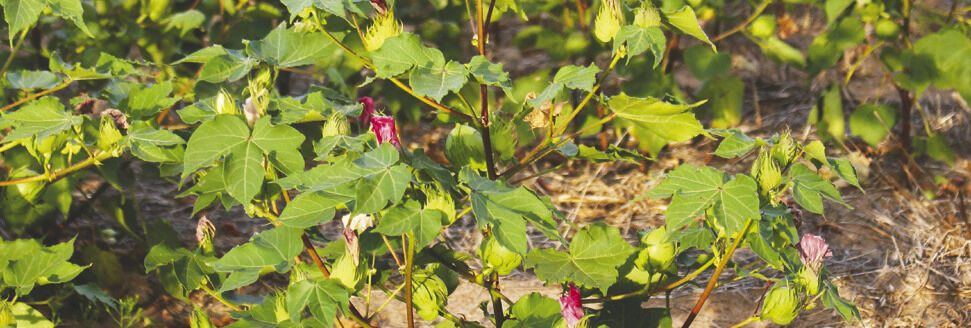American cotton growers now can join the U.S. Cotton Trust Protocol, a new standard for verifying the sustainability progress of U.S. cotton. As consumers continue to demand eco-friendly products, enrolling in the Trust Protocol will help growers ensure markets for their cotton by verifiably demonstrating the sustainability record of American cotton in the global market.
At a crucial time for the U.S. cotton industry, the Trust Protocol helps U.S. growers document and showcase their land management and environmental stewardship practices while helping them achieve continuous improvement related to certain environmental sustainability measurements.
Each participating grower commits to documenting and tracking their progress toward improving soil carbon health while seeking year over year reductions in soil erosion, overall land use, energy consumption and greenhouse gas emissions. By 2025, the Trust Protocol seeks to have more than 50% of all U.S. cotton registered as Trust Protocol Cotton.
“Consumers want more transparency when it comes to the products they purchase, and the European Union is threatening brands and retailers with stricter regulations when it comes to sustainability reporting and the responsible sourcing of raw materials. These evolving dynamics prompted the creation of a new sustainability standard for cotton and the launching of the U.S. Trust Protocol by the industry,” said Gary Adams, president of the U.S. Cotton Trust Protocol. “By joining the Trust Protocol, our growers will now be able to better document their current sustainability programs using a quantifiable, digital platform and that data is assessed and verified by a third-party audit—something no other cotton producing nation does today.”
The Trust Protocol documents and verifies each growers’ sustainability progress through a sophisticated data collection platform developed by Field to Market: The Alliance for Sustainable Agriculture, which is a non-profit alliance comprised of diverse grower organizations and other agricultural, fuel and food supply chain participants and stakeholders. Its mission is to help better define, measure and advance the sustainability of food, fiber and fuel products in the United States. Field to Market’s Fieldprint Analysis Component is widely used by the agricultural industry as a common measurement framework to help document sustainability practices and drive continuous improvement of those measurements.
“Brands and retailers can now purchase U.S. Cotton with even greater confidence, knowing that it is grown more sustainably and verified by third-party audit,” said Adams.
Through the Field to Market platform, participant growers will have access to aggregate year-over-year data on the following five sustainability pillars: water use, greenhouse gas emissions, energy use, soil carbon and land use efficiency. By joining the program and tracking their progress against these five sustainability pillars, participant growers can better demonstrate their sustainability performance and resource use efficiency, while comparing that performance against the Trust Protocol’s verifiable goals and Field to Market’s state and national benchmarks.
“As a fourth-generation cotton grower, I’m excited to do my part to help ensure the future of U.S. cotton and I’m proud to be among the first growers to support and join the U.S. Cotton Trust Protocol, which sets a new standard for more responsibly grown cotton,” said Matt Coley, a cotton grower from Vienna, GA and Trust Protocol board member. “I look forward to using the tools and insights provided by the Trust Protocol to help further my own sustainability efforts and to produce the best cotton possible for US cotton consumers across the globe.”
The Trust Protocol will be hosting live webinar sessions to discuss more about the importance of grower participation as well as a step-by-step of how to enroll. These sessions will begin on Sept. 29—growers can access the full schedule of webinars at the link here to learn more about the Trust Protocol.


